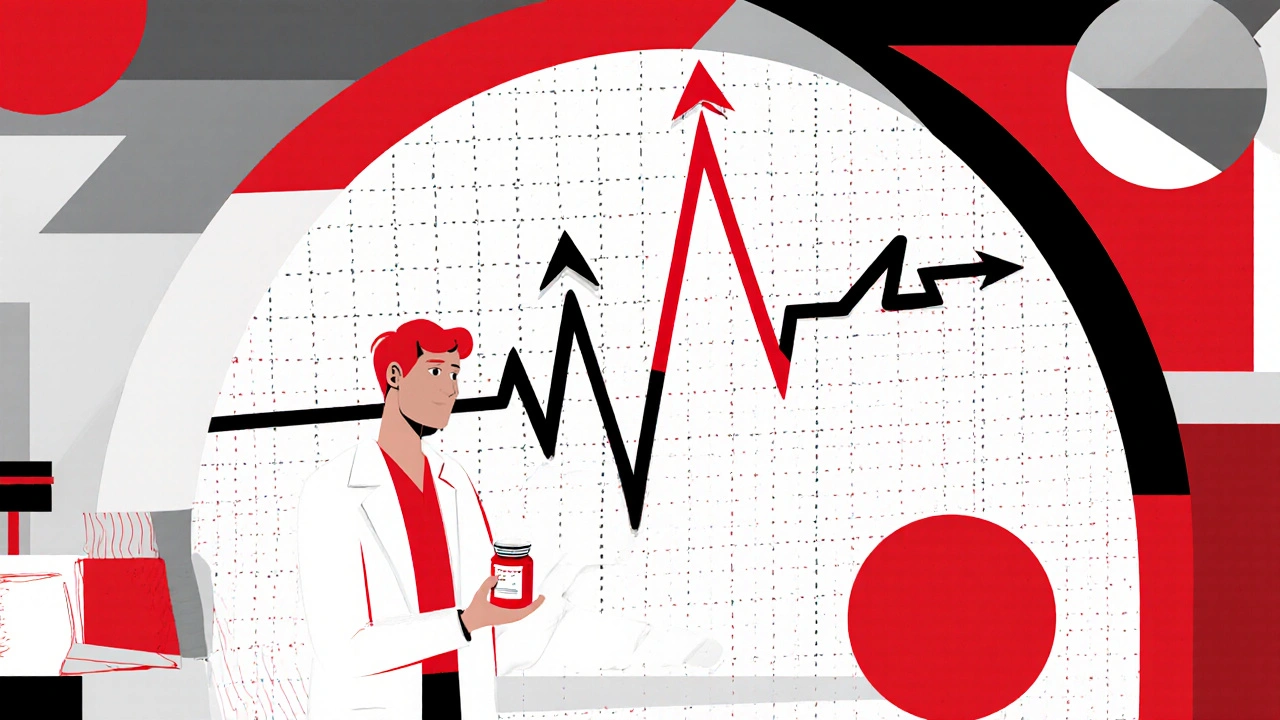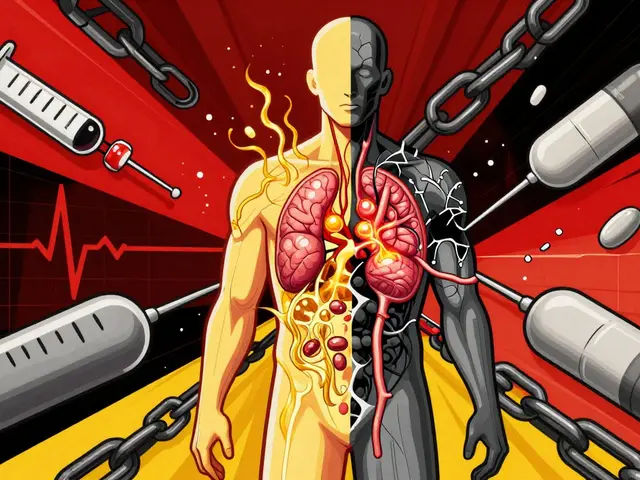Antidepressant Cardiac Risk: What You Need to Know
When you take an antidepressant, a medication used to treat depression and some anxiety disorders by balancing brain chemicals. Also known as antidepressive agents, these drugs help millions feel better—but they aren’t risk-free, especially for your heart. Not all antidepressants affect the heart the same way. Some can cause changes in the heart’s electrical rhythm, leading to a condition called QT prolongation, a delay in the heart’s recovery phase after each beat, which can trigger dangerous irregular heartbeats. This isn’t common, but it’s serious enough that doctors check your heart history before prescribing certain types.
Tricyclic antidepressants like amitriptyline, an older antidepressant often used for chronic pain and depression. and some SSRIs have been linked to higher cardiac risk, especially in people over 60, those with existing heart disease, or those taking other meds that affect heart rhythm. You don’t need to avoid these drugs entirely, but your doctor should know your full medical picture—including if you’ve had a heart attack, irregular heartbeat, or low potassium levels. Even something as simple as a bad case of the flu or dehydration can make these risks worse.
It’s not just about the drug itself. Your body’s metabolism, age, liver function, and other medications you’re on all play a role. For example, if you’re on a beta-blocker or a diuretic, that changes the risk profile. Some newer antidepressants, like escitalopram or sertraline, have cleaner cardiac safety records and are often preferred when heart health is a concern. But even those aren’t zero-risk—especially at high doses or if you’re taking them with other drugs that interact.
There’s no one-size-fits-all answer. What’s safe for one person might be risky for another. That’s why it’s not about fear—it’s about awareness. If you’re on an antidepressant and have unexplained dizziness, palpitations, or fainting spells, speak up. Get an ECG if your doctor recommends it. Don’t stop your meds cold turkey—talk to your provider first. The goal isn’t to avoid treatment, but to make sure your treatment doesn’t trade one health problem for another.
The posts below dive into real-world comparisons and risks tied to specific antidepressants and related medications. You’ll find clear breakdowns of how drugs like amitriptyline stack up against alternatives, what the latest research says about heart rhythm effects, and how to spot warning signs before they become emergencies. This isn’t theoretical—it’s what people actually experience. What you’ll find here is practical, grounded, and focused on helping you make smarter choices with your care.

Citalopram vs Escitalopram: QT Prolongation Risks and Recommended Dose Limits
Explore how citalopram and escitalopram affect the QT interval, the dose limits set by regulators, and practical steps to minimize cardiac risk while treating depression.
read more




